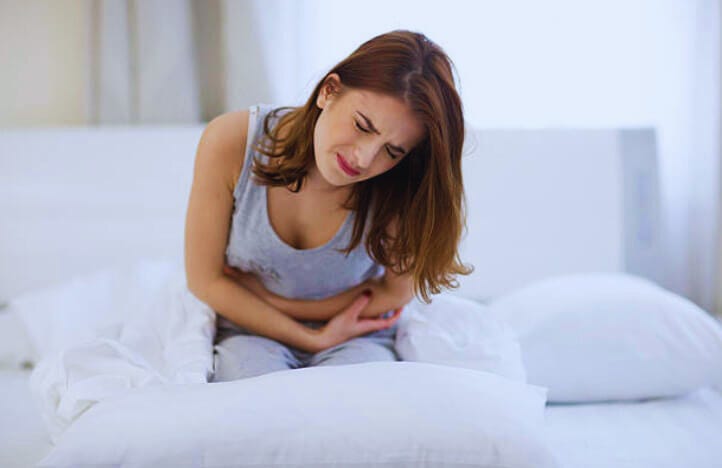For women struggling with irregular or absent periods, the prospect of inducing a period quickly may seem appealing. Some home remedies and natural methods claim to help jumpstart your cycle and get your period flowing literally overnight. However, the safety and effectiveness of these approaches remain questionable. This blog post reviews some of the methods for allegedly starting your period right away and evaluates if they live up to their promises.

Contents [hide]
- 1 How To Get Periods Overnight?
- 2 Yoga Asanas to Get Periods Faster
- 3 Risks of Inducing Periods
- 3.1 1. Hormonal Imbalance
- 3.2 2. Potential for Underlying Conditions to Go Undiagnosed
- 3.3 3. Side Effects of Medications
- 3.4 4. Herbal Remedies and Supplements
- 3.5 5. Physical Stress
- 3.6 6. Psychological Stress
- 3.7 7. Complications with Pregnancy
- 3.8 8. Ineffective Treatment
- 3.9 Precautions and Recommendations
- 4 Frequently Asked Questions
How To Get Periods Overnight?
Here are some methods that are believed to help encourage the onset of menstruation, but they should be approached with caution and after consulting with a healthcare provider, especially if you have underlying health issues or are on medication.
Natural Methods to Encourage Menstruation
1. Increase Vitamin C Intake
- Some believe that vitamin C can help induce menstruation by increasing estrogen levels and decreasing progesterone levels, potentially helping to break down the uterine lining.
- Foods rich in vitamin C or supplements can be used, but high doses of vitamin C can be harmful, so it’s important to use this method judiciously.
2. Pineapple Consumption
- Pineapple contains bromelain, an enzyme that some claim can stimulate menstruation by softening the cervix.
3. Hot Compresses or Baths
- Applying heat to the abdominal area or taking a hot bath can relax the muscles, potentially easing any blockage and encouraging menstruation.
4. Herbal Teas
- Certain herbal teas, such as ginger tea, parsley tea, or chamomile tea, are traditionally used to stimulate menstruation. However, their effectiveness is anecdotal, and some herbs can interact with medications.
5. Relaxation Techniques
- Stress can be a significant factor in delaying periods. Techniques like yoga, meditation, and deep breathing can help reduce stress and potentially normalize your cycle.
Medical Methods
1. Hormonal Contraceptives
- Hormonal birth control methods can be used to regulate menstrual cycles. Stopping the use of birth control pills can lead to a withdrawal bleed, which resembles a period.
2. Progesterone Therapy
Your doctor may prescribe progesterone or a progesterone-like medication to trigger menstruation. After stopping the medication, you may experience bleeding within a few days.
Important Considerations
- Consultation with a Healthcare Provider: Before trying to induce your period, especially overnight, it’s crucial to speak with a healthcare professional. They can provide guidance based on your health history and specific situation.
- Understanding Your Body: Recognize that every woman’s body is different, and what might work for one person may not work for another.
- Safety First: Always prioritize your health and safety over trying to induce your period. Avoid extreme measures or unverified herbal supplements that could harm your health.
Yoga Asanas to Get Periods Faster
Here are some yoga asanas that are often recommended to help encourage a more regular menstrual cycle:

1. Bhujangasana (Cobra Pose)
- How to Do: Lie on your stomach with your hands under your shoulders and elbows close to your body. As you inhale, lift your chest off the floor, keeping your lower body and hips grounded. Hold for a few breaths, then release.
- Benefits: This pose strengthens the abdominal muscles and improves blood circulation in the uterus and ovaries.
2. Dhanurasana (Bow Pose)
- How to Do: Lie on your stomach, bend your knees, and hold your ankles with your hands. Lift your thighs and chest off the floor, pulling your legs back and up. Hold the pose for a few seconds before releasing.
- Benefits: Bow Pose stimulates the reproductive organs, helps alleviate menstrual discomfort, and regulates the menstrual cycle.
3. Malasana (Garland Pose)
- How to Do: Squat with your feet as close together as possible, keeping your heels on the floor if you can. Bring your elbows inside your knees with your palms together in a prayer position, and gently press your elbows against your knees.
- Benefits: Opens up the pelvis, increases circulation to the pelvis, and can help regulate menstrual cycles.
4. Ustrasana (Camel Pose)
- How to Do: Kneel on the floor with your knees hip-width apart. Place your hands on your hips, then slowly arch back and place your hands on your heels. Keep your thighs perpendicular to the floor and your head dropped back.
- Benefits: Stimulates the abdominal organs, improves digestion, and relieves menstrual discomfort.
5. Balasana (Child’s Pose)
- How to Do: Sit on your heels with your knees hip-width apart. Bend forward, lowering your forehead to the floor, while stretching your arms forward or letting them rest alongside your body.
- Benefits: A restorative pose that helps relieve stress and fatigue, also beneficial in soothing menstrual discomfort.
6. Pavanamuktasana (Wind Relieving Pose)
- How to Do: Lie on your back, bring your knees to your chest, and wrap your arms around your legs, hugging them. You can rock gently side to side.
- Benefits: Helps in relieving bloating, gas, and improves digestion, which is often problematic during menstrual periods.
Risks of Inducing Periods
Inducing periods, whether through natural methods, hormonal treatments, or other medical interventions, carries various risks and potential side effects. It’s crucial to approach the idea of inducing menstruation with caution and, ideally, under the guidance of a healthcare provider. Here are some risks associated with different methods of inducing periods:

1. Hormonal Imbalance
- Artificially inducing a period can disrupt the natural hormonal balance in your body, leading to irregular menstrual cycles, changes in menstrual flow, or even exacerbating symptoms of premenstrual syndrome (PMS).
2. Potential for Underlying Conditions to Go Undiagnosed
- Regularly inducing periods without medical consultation can mask underlying health issues such as polycystic ovary syndrome (PCOS), thyroid disorders, or endometriosis. These conditions require proper diagnosis and management.
3. Side Effects of Medications
- Hormonal medications, such as birth control pills or progesterone supplements used to induce periods, can have side effects. These may include nausea, weight gain, mood changes, and, in rare cases, more severe health risks like blood clots.
4. Herbal Remedies and Supplements
- Some herbs and supplements touted to induce menstruation can have side effects or interact with other medications. For example, high doses of vitamin C or certain herbal teas can lead to stomach upset, diarrhea, or more serious health issues. The safety and efficacy of these methods are not always scientifically proven.
5. Physical Stress
- Methods that involve physical manipulation or excessive exercise to induce a period can put unnecessary stress on the body, leading to fatigue, injury, or worsening of menstrual symptoms.
6. Psychological Stress
- The focus on inducing a period, especially if it becomes an obsessive concern, can contribute to psychological stress and anxiety, which can, in turn, further disrupt menstrual cycles.
7. Complications with Pregnancy
- If pregnancy is a possibility, attempting to induce a period could harm an existing pregnancy or complicate efforts to conceive in the future.
8. Ineffective Treatment
- Attempting to induce a period without addressing the root cause of menstrual irregularities can lead to ineffective treatment, resulting in frustration and wasted effort.
Precautions and Recommendations
Frequently Asked Questions
When can I expect my period to start?
On average, most girls start their first period around 12 years old, but it can vary. Typically, periods begin about 2 years after breast development starts.
What might cause my period to be 10 days early?
An early period could be due to hormonal changes during puberty or perimenopause. Other reasons include conditions like endometriosis, PCOS, or spotting in early pregnancy.
Is there a way to speed up my period?
While there’s no instant solution, hormonal birth control or natural remedies like herbs might help shorten your period in some cases. Patience is key as it varies for each individual.
How can ginger help induce periods?
Ginger contains a compound called gingerol that may promote uterine contractions and reduce inflammation, potentially aiding in starting your period. Boil chopped ginger in water to make ginger tea for consumption.
I am a medical student with experience and interest in Women’s health and well-being.